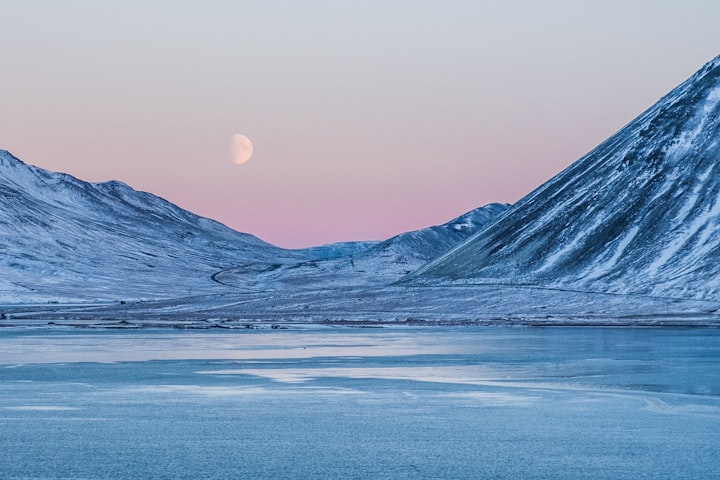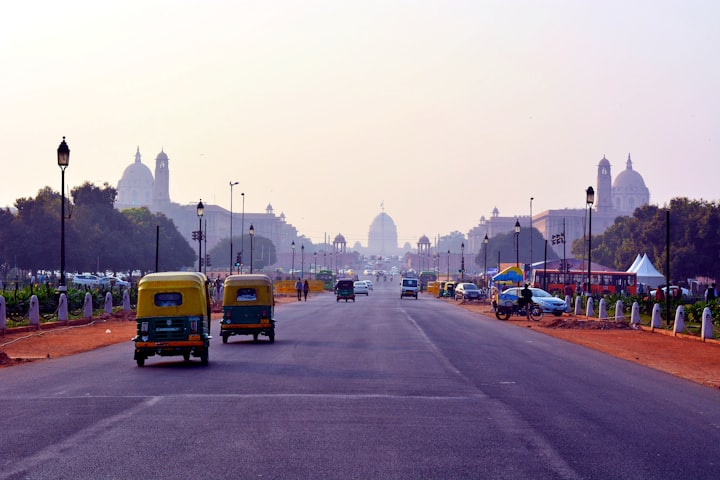Arctic - the Winners and Losers of Climate Change
To err is human but to keep erring is outright stupid - that’s the story of human colonization of the Arctic in one sentence.
No other region of the world has transformed as rapidly as the Arctic in the recent past. Global warming has led to a loss of ice cover in the north, which exposes the dark-colored ground. This ground absorbs more heat from sunlight and further leads to heating up of the region, leading to further depletion of ice cover. Arctic amplification, as this process is commonly known, has been the leading cause of what has been the steepest temperature rise in the world. Images of malnourished polar bears, to which most of us are desensitized by now, are literally just the tip of the iceberg. The temperature rise, loss of ice sheets, growth of vegetation, and opening of trade activities along the North Sea route, Northwest and Northeast passages are all creating a positive feedback loop of unprecedented changes in one of the last and the most pristine safeguarded ecosystems of our planet.
February 2021 was a historic month for the Arctic because, for the first time in the region’s history, a commercial ship sailed across the North Sea route in the middle of the winter. Christophe de Margerie traveled from Jiangsu in China to the remote Arctic terminal of Sabetta, across the Bering Strait, through thick ice and cold dark arctic winter. Trade during a small window during summers has been existent for a while now and has rapidly grown in the past few years. These developments have further emboldened the ambitions of countries such as Russia, Canada, the USA, and even China to exploit the new profitable trade routes and vie for a claim to be the King in the North (I’m sorry, I couldn’t help it :p).
Apart from sea lanes, the Arctic also sits on a treasure trove of minerals such as coal, iron ore, zinc, lead, nickel, precious metals, diamonds, and gemstones. The region is also known to have vast reserves of oil and gas, which, if exploited, could set us decades behind on our climate goals.
What makes the region even more important is the opening up of strategic choke points that could have massive effects on geopolitics. China, being a near-arctic state, has strongly vested interests in who gets to control the Arctic. The arctic routes can save billions of dollars in global trade by connecting the busiest ports along southeast China to those in northern Europe and the USA through a faster trade route. For perspective, a cargo ship traveling from Shanghai to Rotterdam travels for 10,500 nautical miles using the Suez Canal route. This distance can be reduced to around 8,500 nautical miles through the North Sea route and a similar distance through Northern Canada. The latter would still take some years to become easy to voyage through but if the ice caps continue to melt at the present rate, it won’t be long before global trade gets completely disrupted.
Faster and less carbon-intensive trade routes, access to minerals that are key for cleantech development and economic upliftment of the marginalized communities in the far north sound good. But this in no way can compensate for the damage done to the region’s ecosystem. Climate change-induced ice cover depletion has already degraded the region’s biodiversity. Unlike other species that have the luxury to migrate, species up north have nowhere colder to go to during summers. Apart from this, the changing vegetation patterns, such as the greening of the Tundra have led to the growth of invasive species in the region. Recent satellite imagery and older aerial photography show that North American beavers are colonizing the Arctic tundra of Alaska, with over 12,000 ponds thus far counted in western Alaska, a doubling of ponds since 2000. A rise in shipping in the region could lead to severe oil spills that further degrade the local ecosystems. Ship movements also lead to noise and light pollution, which might seem insignificant to humans but are very critical to the movement of small fish and birds that sustain complex food chains in the region.
If shipping across the arctic would increase, that would also lead to emissions of black carbon and other greenhouse gases in the region. The complex nature of local meteorology implies that these emissions can have unpredictable changes in the region. Further heating and melting of ice sheets in the Arctic would lead to a further rise in sea levels and an increase in extreme weather events all over the world.
Despite all the concerns being raised by scientists, countries have not been able to reach a consensus on the non-exploitation of the Arctic. 'Sustainable colonialism' is the term that is used to greenwash the developmental activities in the region. The case of the Arctic is not the first instance of unfettered human greed winning over ecosystem conservation efforts. Settler colonialism from a few centuries back, followed a similar course of action to displace indigenous communities, the effects of which can be felt to date. This was followed by a series of ecosystem degradation events affecting terrestrial forests, marshes, lakes, rivers, oceans, reefs, etc. The Arctic ecosystem collapse is nothing but an extension of this trend that has already wreaked so much havoc. Our failure to learn from past mistakes will not just end up destroying the world’s last well-preserved ecosystem but would also set off a series of events we may not be able to prepare for.
About the Creator
Rishi Rathi
Musing over sustainability and impact and ways to make the world better than we inherited. I'm learning while I write and I want your opinions on my stories.
Instagram - rishirathi_







Comments
There are no comments for this story
Be the first to respond and start the conversation.